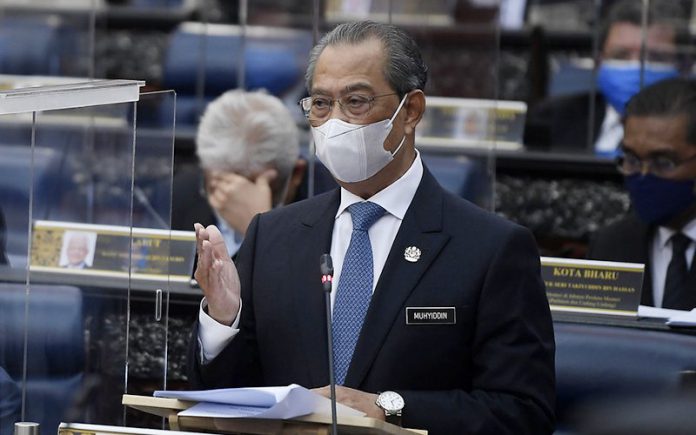KUALA LUMPUR, Aug 4– Prime Minister Tan Sri Muhyiddin Yassin’s announcement of a confidence vote in next month’s Parliament sitting could help reduce uncertainty among investors, especially on the country’s economic outlook.
Juwai IQI chief economist Shan Saeed said today’s announcement has given clearer signals on the political uncertainty in the country and may have given a morale boost to investors.
“Political uncertainty has become part of the macro picture in the COVID-19 environment whether its Sydney, Delhi, Jakarta, London, San Paulo, Paris or New York, where countries are living in a new world to rebuild economies and take them to the next stage of economic recovery.
“In the next three to five years, many economies will either have negative growth, zero growth or slow growth in times to come. Hopefully, the announcement (by the Prime Minister) would bring down the political temperature to support the (country’s) economic outlook,” he said.
Manulife Investment Management (M) Bhd head of retail wealth distribution Ng Chze How agreed that the Prime Minister’s announcement was positive as it would calm down rising sentiment.
He sees the upcoming event in Parliament as an amicable move that will reduce political uncertainties.
“There are many factors that will impact investors’ confidence and markets would have already priced in the factors that will impact future performance. We remain positive on the prospects of the market and the road to recovery will be a bumpy one.
“It is important to look beyond the headlines which may be short term in nature due to the volatility of the current climate but more importantly, investors need to identify and capitalise on long-term trends that will be key beneficiaries,” he said.
CGS-CIMB Securities Sdn Bhd said political uncertainty is negative for the markets as it leads to further uncertainties about the future leadership and policy direction of the country.
This is likely to lead to a further outflow of foreign funds from the Malaysian equity market and companies with high foreign shareholdings may be vulnerable due to potential selling, the brokerage said in its Shariah Research Reports Scheme for the second half of 2021 released recently.
According to the report, foreign investors’ net fund outflows from Malaysia rose to a monthly high in 2021 in June to RM1.17 billion due to concerns over the potential impact of prolonged lockdowns on businesses, political uncertainty and a weaker ringgit.
“An amicable solution between various political parties, which could stabilise the government, is likely to be viewed positively by the market,” it said.
Meanwhile, Juwai IQI’s Shan said the economy would continue to move ahead despite uncertainty in the external environment and equity market turmoil in the advanced economies.
“The vaccination progress is speeding up with the opening of walk-in centres which will provide an opportunity for states to change the status from phase one to phase two. It is a trade-off between economics and epidemiology at the moment. Countries are trying to manage the Delta and Gamma variants. Not an easy global macroeconomic outlook for many struggling economies,” he noted.
He said the economic value of vaccine supply and how the market would apply new economic growth strategies to bring the growth outlook trajectory back effectively would be deliberated upon by key decision-makers globally.
“It’s not about the Malaysian market, the global markets would remain volatile and tumultuous. The global markets are not settling down very soon and there will be a lot of shenanigans in the advanced economies especially the US and Europe where the growth outlook has become a question mark.
“The global economy is heading for stagflation and the1970s era is back. Inflation remains serious in Western economies and central banks are panicking as monetary tools are becoming less effective and financial markets are going bazooka,” he added.



















